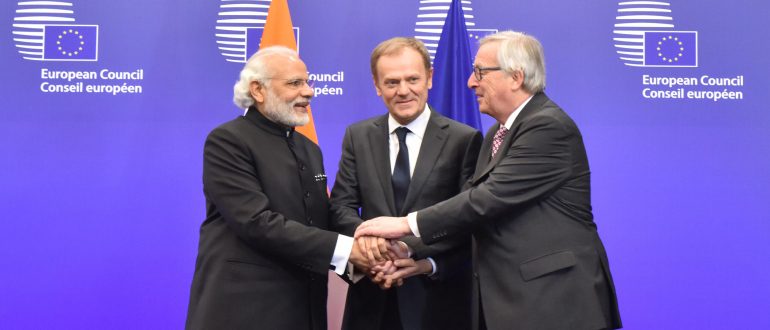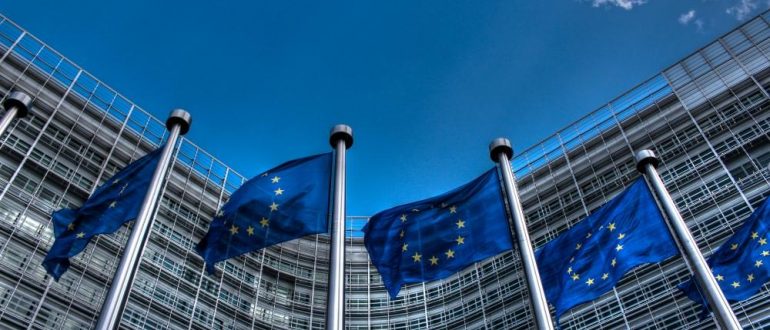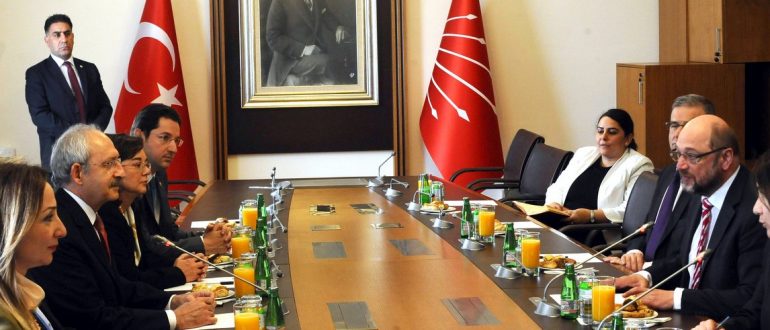EU Energy Policy left out in the dark while Russia moves forward
While energy policies of key European member states are increasingly at odds with the common EU energy policy framework, the EU’s vulnerability in external energy affairs is taken advantage of by foreign actors. If EU countries do not seriously strengthen a common mandate to act on the community’s behalf in external energy affairs, they run the risk of giving way to state-backed foreign energy suppliers that act more determinately on the international scene. Even some EU member states do not longer seem to trust in a common position.
1. Issues that will still affect Europe once the euro crisis has long been forgotten
Anapa, December 2012: Russia’s Vladimir Putin invites the prime ministers of all South Stream partner states to the Black Sea town of Anapa to participate in the inauguration festivities of the Kremlin’s major strategic project. From late 2015 onwards, Russian gas shall flow to South-East Europe, completing the circumvention of Ukraine and possibly downgrading the business case for any future gas deliveries from non-Russian suppliers to the already highly undiversified countries of the former communist block.
Berlin, November 2012: Philipp Rösler, the German minister of economic affairs, comments that the statue of Ludwig Erhard – the founding father of the post-war German social market economy –, installed in the ministry’s premises, might eventually turn his back on the minister when the latter enters the building. Background: With already 25% of German electricity consumption being met by state-sponsored renewable energies, the German ministry for economic affairs recently drafted a bill prohibiting power plant owners from shutting down their assets for the sake of blackout prevention. The electricity market of Europe’s largest economy can thus partially be seen on its way towards a centrally-planned economy.
Brussels, at about the same time: The European Commission publishes a communication on the EU’s internal energy market, announcing new steps towards the completion of the project it started more than a decade ago.
All three paragraphs represent seemingly unrelated and recent outcomes of energy policy in Europe. They did not make it into major headlines at a time when most of the public’s attention was absorbed by the management of the euro crisis. Mistakenly so, as the events provide a glimpse into possibly the fiercest conflict currently raging in European political economy. Namely, “who will call the shots” in framing the continent’s energy sector: the EU Commission, member states, markets, all or none of the above?
Eventually the struggle may lead to the serious weakening of the European Union along lines of internal and external energy policy as these lines cannot be seen in isolation. This in turn will have consequences for both EU energy consumers and the EU’s power position inside and beyond the borders of the European Union.
2. The beast that won’t die
Let’s start with the external dimension of European energy policy highlighted in the beginning. To cut a long story short, the global gas market is in turmoil due to the shale gas revolution in the US. In Europe, Gazprom’s market position is increasingly challenged as cheaper LNG-gas is shipped to European ports. On top of this, the European Commission is tightening the screws on the Russian giant, launching cases of antitrust charges against it and promoting the reverse-flow of and third party-access to pipelines as well as the diversification of suppliers, e.g. from the Caspian region. “Brave new world”, one might say. Prominent European analysts have thus sung the song of the Russian “retreat” recently.
Interestingly, the Russians do not think so and they proceed with their traditional approach unimpressed by both the current unfavourable market fundamentals and also by European policy initiatives. As the introduction showed, they just signed the final investment decision with Bulgaria on the South Stream Pipeline. The project was launched in Anapa in the beginning of December 2012. The signatures reveal the following two crucial insights.
Russia is determined to keep its energy and thus political leverage over the countries of South-East Europe at all cost. There simply is no clear business case available for this pipeline but they still go on with their plans. The Russians seek to cement their position as the gas powerhouse in Eastern European markets and they pay a “geopolitical premium” to avoid the position of being just one supplier among many. If they succeed in this strategic game of chess, they will close the opportunities for the Azeris or any new supplier to Europe. Caspian gas is now unlikely to be used beyond Turkey anytime soon.
3. Russia’s “divide et impera” prevails over external energy policy dreams
At the same time, the European Union does not credibly get its act together and is not taken seriously by both Russia and, worse, by its own member states in South-East Europe. There have been countless trips of senior EU delegates to the region, to Ankara, Baku or even Tashkent to promote any form of the “Southern Gas Corridor”. There have been even more roundtable discussions and public diplomacy initiatives in European capitals about energy security and diversification of suppliers. The outcome of this? Not much! “Russia rules the waves”, playing “divide et impera” with different EU member states and locking in long-term investments and structural dependencies. The problem here lies with the set-up of the European Union. The national sovereignty over energy policy still lies with the individual member states. In the case of South-East Europe, these states seem to attach a higher value to the cooperation with state-backed Gazprom than to the bloomy prospects of a half-heartedly progressing EU external energy policy. They no longer take the EU’s attempts for alternative suppliers seriously, simply because the Commission does not have a strong mandate. Although their interests might be served best with a common, coherent European approach, their distrust into the decentralised, market-based structures makes them join the Russians with their clear gas discount offers. A disaster for the EU’s external energy policy strategy in the making.
4. The home front increasingly crumples, too
The outlook for a major EU energy project – the Southern Gas Corridor – thus seems to be grim. Unfortunately, the situation is not much brighter on the home front, in the continent’s heartland. Here, the German government gets caught up between its ambitious “Energiewende” agenda on the one side and both the EU’s regulatory framework and the “physical realities” on the other side. Accordingly, the Commission recently announced that it might take a severe look at the country’s feed-in tariff system as it could be in conflict with the principles of the common energy market. Whatever the outcome of the specific case, the “Energiewende” runs into conflict with the common EU regulatory framework as the market is widely replaced by the decisions of a sovereign member state. Countries like Poland or France, too, are unwilling to hand over too much power to Brussels in the decision over their energy mix. This could increasingly lead to a central European scenario in which each nation state follows its own “Sonderweg” by developing fundamentally different energy systems, making energy provision potentially more insecure and more costly at the same time. Brussels is again left outside in the dark with its understanding of a common European energy market. It is the member states that will either give Brussels a stronger say in energy policy or they will keep the common European energy market fragmented.
5. Lessons learned
Seemingly, a common energy policy with a strong mandate in Brussels is increasingly undermined both in its external and internal energy policy with mutually reinforcing effects. As an internally disagreeing structure will not be able to influence its surroundings, Europeans could soon pay the price for a more insecure and more expensive energy provision. The quest for sovereignty in this core and strategic sector has been opened and its closure will have clear consequences for the set-up of the European Union. The nation state is back and there is so far not much Brussels can do against it. Unfortunately a common approach has been and remains very necessary in forming a strong position in external energy policy. Indeed, it would be “irony of history” if the unity of the European Union, whose predecessor was once predominately formed by the common management of coal and steal, is weakened by the energy challenges of the 21st century.
by Philipp Nießen (Guest contribution)
Philipp Nießen studied energy economy in Leipzig and Moscow and is working for the department of energy policy of the “Federation of German Industries” (Bundesverband der Deutschen Industrie ). This text solely represents his private points of view.



